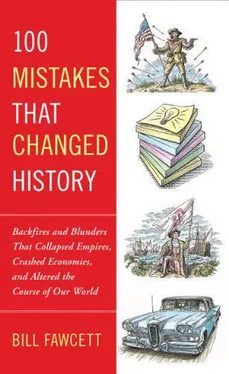The best example of what happened is the 1999 repeal of the 1933 Glass-Steagall Act. Note that it was 1999 during the Clinton administration, and its repeal was strongly supported by the White House. The Glass-Steagall Act was written in reaction to abuses by the finance houses and major banks. They had created a financial bubble that burst in the crash of 1929. Back then, companies such as Goldman Sachs created investment funds that sold and were valued at more than $1 billion in a single year. None of them was supported by even a small percentage of real value. To get money to invest in the highly profitable markets, banks sold mortgages to just about anyone who seemed vaguely qualified. They would be able to pay, or, if they could not, the repossessed buildings could be sold at a profit, since property values had gone up steadily for a decade. Either way, the banks profited. So the Glass-Steagall Act was created to prevent such gaming of the system as had been done by the Morgans and Rothschilds and for which, when the bubble burst, the entire nation paid the price.
Is any of this beginning to sound familiar?
Move the clock ahead to the late 1990s. The tech boom was booming, and there was money everywhere. The stock market had jumped from a Dow Jones of 1,000 in 1970 to near 14,000 in 2007. On paper, a lot of people were a lot wealthier. So Congress and President Clinton finally succumbed to decades of demands by the financial businesses to remove the “onerous” and “unnecessarily restrictive” regulations of such bills as the Glass-Steagall Act. In 1999 they did. Forgetting that the bill was there because of what greed and short-term thinking had done to the nation seventy years earlier, legislators promised a new era of prosperity. After all, that was a long time ago, and we haven’t had a collapse like that since. The part of that equation the politicians and money handlers missed was that we hadn’t had such a collapse because the very laws they wanted repealed had forced moderation and protected Americans against it. It wasn’t even as if some of the leaders didn’t understand what they were doing.
Senator Byron L. Dorgan was quoted in the New York Times in 1999:
I think we will look back in 10 years’ time and say we should not have done this but we did because we forgot the lessons of the past, and that that which is true in the 1930’s is true in 2010… I wasn’t around during the 1930’s or the debate over Glass-Steagall. But I was here in the early 1980’s when it was decided to allow the expansion of savings and loans. We have now decided in the name of modernization to forget the lessons of the past, of safety and of soundness.
The representatives who repealed Glass-Steagall and other related laws knew what they might be doing. Short-range profits and campaign contributions promised to be generous, and if it kept the boom going awhile longer, then the repeal must be a good idea. It just seemed that they could not help themselves.
With Glass-Steagall repealed, there was no limit on how big a financial company might become or what it could be involved with. A major trophy on the wall of the office of billionaire Sanford Weill was the pen that President Clinton used to sign the Glass-Steagall repeal. Weill went on to build Citi—we’re too big to fail; give us $45 billion please—group, which includes Citibank.
As a side note, those mega companies that we considered so vital to the economy that we had to bail them out with billions of taxpayer dollars were only really about a decade old. Almost all of the good times and economic expansion was done without them. Which rather begs the question of whether they were really that important.
With Glass-Steagall gone, the financial sector lobbied for and got further relaxations of those nasty restrictions that had been passed because of the Depression. These allowed for the massive rise in subprime mortgages, the trading in the same subprimes, hedge funds, and unsupported debentures. These were bought and sold by just about every institution that had to be saved with taxpayer dollars and increases in the national debt.
The Federal Reserve Bank changed its approach from depositor protection to profit protection and in doing so guaranteed the subprime mortgage would someday explode. One of the greatest offenders in these practices was Goldman Sachs, and the head of that investment firm, Lloyd Blankfein, showed he was very clear on what was happening in a Goldman Sachs profile run by the New York Times in June 2007:
We’ve come full circle, because this is exactly what the Rothschilds or J. P. Morgan the banker were doing in their heyday. What caused an aberration was the Glass Steagall Act.
After the repeal of Glass-Steagall, the big banks and financial houses—there being little distinction between them anymore—succeeded in getting reversed just about all of the protections put in place after the Great Depression. The constant refrain was that those laws were no longer necessary. Then of course the bubble burst, and we all found out that those exact same things can, and did, go wrong again. Sometimes they had new labels, but the abuses and results were the same. It took more than a decade and a world war to break the economic malaise of the Great Depression. It is possible that the baby boomers, some of whom were in their sixties in 2009, may not live long enough to see a full economic recovery. All because, even when it is clearly spelled out, the politicians of the world once more did not learn from history and so made the same mistakes.
Those who cannot learn from history are doomed to repeat it.
—GEORGE SANTAYANA (1863-1952)
Of course George Santayana also said:
History is a pack of lies about events that never happened told by people who weren’t there.
THE BERKLEY PUBLISHING GROUP
Published by the Penguin Group
Penguin Group (USA) Inc. 375 Hudson Street, New York, New York 10014, USA
Penguin Group (Canada), 90 Eglinton Avenue East, Suite 700, Toronto, Ontario M4P 2Y3, Canada (a division of Pearson Penguin Canada Inc.)
Penguin Books Ltd., 80 Strand, London WC2R 0RL, England
Penguin Group Ireland, 25 St. Stephen’s Green, Dublin 2, Ireland (a division of Penguin Books Ltd.)
Penguin Group (Australia), 250 Camberwell Road, Camberwell, Victoria 3124, Australia (a division of Pearson Australia Group Pty. Ltd.)
Penguin Books India Pvt. Ltd., 11 Community Centre, Panchsheel Park, New Delhi—110 017, India
Penguin Group (NZ), 67 Apollo Drive, Rosedale, North Shore 0632, New Zealand (a division of Pearson New Zealand Ltd.)
Penguin Books (South Africa) (Pty.) Ltd., 24 Sturdee Avenue, Rosebank, Johannesburg 2196, South Africa
Penguin Books Ltd., Registered Offices: 80 Strand, London WC2R 0RL, England
This is an original publication of The Berkley Publishing Group.
The publisher does not have any control over and does not assume any responsibility for author or third-party websites or their content.
Copyright © 2010 by Bill Fawcett & Associates Inc.
Interior maps provided courtesy of the author. Maps created by James Clouse.
All rights reserved.
No part of this book may be reproduced, scanned, or distributed in any printed or electronic form without permission. Please do not participate in or encourage piracy of copyrighted materials in violation of the author’s rights. Purchase only authorized editions.
BERKLEY ®is a registered trademark of Penguin Group (USA) Inc. The “B” design is a trademark of Penguin Group (USA) Inc.
PRINTING HISTORY
Berkley trade paperback edition / October 2010
Library of Congress Cataloging-in-Publication Data
Читать дальше












